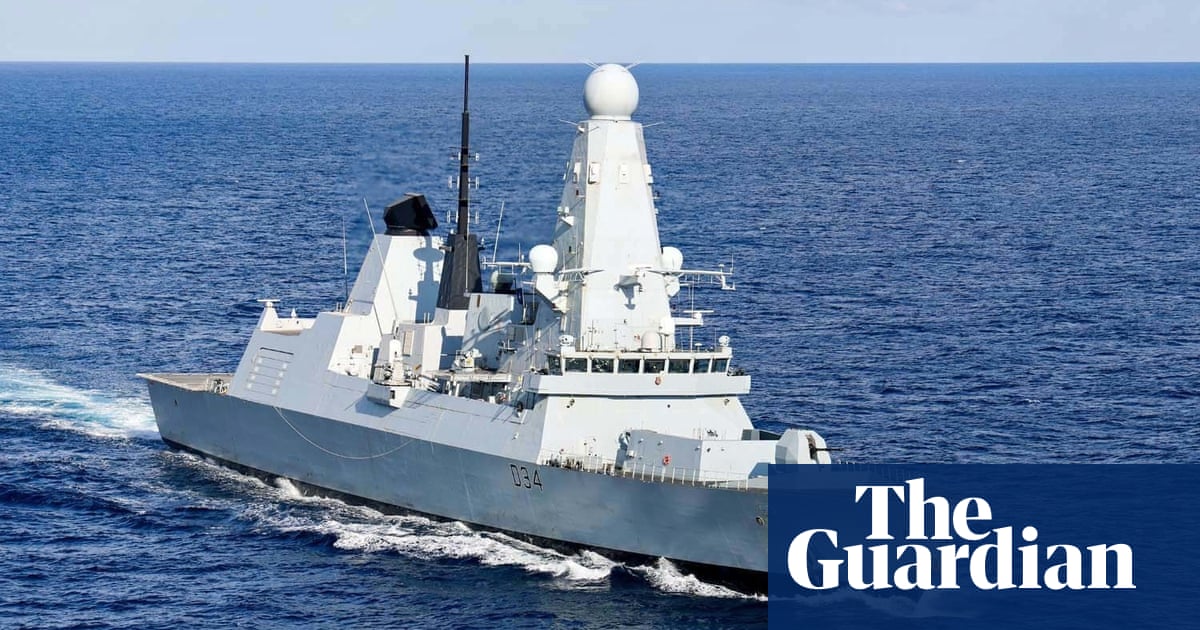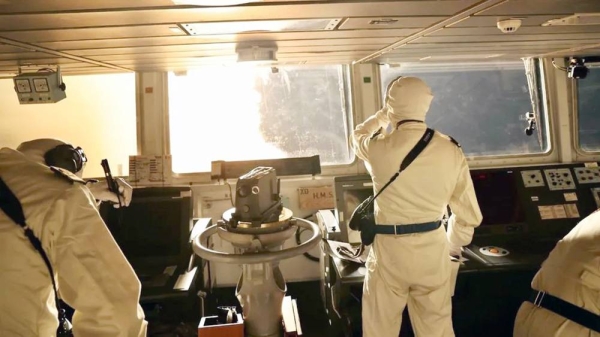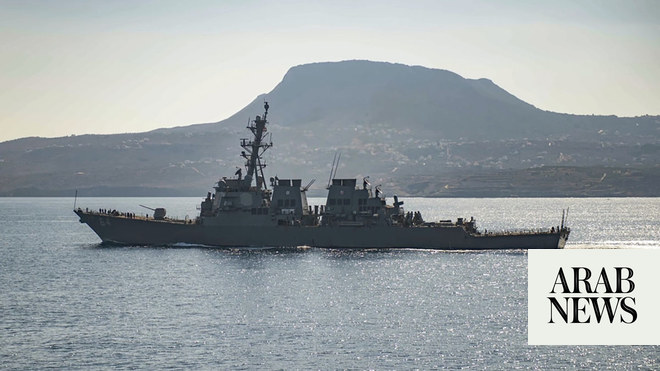
The US and the UK have warned “there will be consequences” after warships from both countries repelled a barrage of 21 Houthi rockets, drones and cruise missiles apparently fired at western warships in the Red Sea.
Antony Blinken, the US secretary of state, said further attacks by the Yemeni rebels on international shipping could prompt a western military response amid speculation that Washington could bomb military targets in an attempt to prevent future raids.
“I’m not going to telegraph or preview anything that might happen,” Blinken said on a trip to Bahrain. “All I can tell you again, we’ve made clear … that if this continues, as it did yesterday, there will be consequences.”
In Britain, Grant Shapps, the defence secretary, told reporters to “watch this space” at a press briefing and directly accused Iran of helping the Yemeni rebels with intelligence and surveillance.
Shapps said Britain, its western allies and Saudi Arabia were “all agreed” that the series of attacks on warships and merchant shipping in the southern Red Sea “cannot continue” and did not rule out striking Houthi military targets on land.
In a statement released before the press briefing, the defence secretary said: “The UK alongside allies have previously made clear that these illegal attacks are completely unacceptable and if continued the Houthis will bear the consequences.”
There has been speculation that the US and its allies, which have so far been reacting only to Houthi attacks, could try to prevent the maritime disruption with strikes on the rebel group’s missile sites, radar stations and other military sites.
A week ago, the US and UK and 10 other western nations made a joint declaration, again warning the Houthis that there would be consequences if their attacks against merchant shipping in the southern Red Sea continued. About 15% of world maritime trade normally flows in the waters south of the Suez Canal.
Shapps said the missile and drone attack, at 9.15pm on Tuesday, represented an escalation. Although the warning on 3 January did lead to a short pause in attacks, he said: “What happened last night changes that again.”
He added that people should draw “natural conclusions from that”.
HMS Diamond shot down seven of the Iranian-designed drones, Shapps said – and he indicated the British vessel was “potentially” targeted by the Houthis.
Three US destroyers and F18/A warplanes operating from the USS Dwight D Eisenhower aircraft carrier were also involved in repelling the attack, but no casualties or damage was reported, the US Central Command (Centcom) said overnight.
“Iranian-backed Houthis launched a complex attack of Iranian designed one-way attack UAVs … anti-ship cruise missiles, and an anti-ship ballistic missile from Houthi-controlled areas of Yemen into the southern Red Sea,” Centcom added.
It was the most sustained and complex assault by the Iran-backed group since the Houthi force governing Yemen from the capital, Sana’a, began attacking shipping in the southern Red Sea from mid October, in support of Hamas in its war with Israel.
A spokesperson for the Houthis, once seen as a minor localised military force, said in a statement the attacks would continue “until the siege of Gaza is lifted”. An American vessel had been targeted because it was providing support to the Israelis, the group added.
The British defence secretary also directly accused Iran of helping the Houthis. “I am in no doubt whatsoever that the Iranians are heavily behind what they’re [the Houthis] are doing, including ISR [intelligence surveillance and reconnaissance] eyes and ears,” he said.
Previous intelligence leaks from the US have suggested an Iranian paramilitary surveillance vessel is providing intelligence about shipping movements in the southern Red Sea to the Houthis.
There have been 26 attacks since mid-October, deterring a large number of shipping companies from using the Red Sea naval route and pushing up prices.
Shapps said HMS Diamond had “repelled the largest attack by the Iranian-backed Houthis in the Red Sea to date”. He added that the ship, described by the Royal Navy as “a jewel in the naval crown”, had destroyed multiple attack drones with guns and Sea Viper missiles.
Each Sea Viper/Aster missile costs about £1m to £2m. Although the number of missiles fired is not yet clear, the one-way attack drones likely to have been used by the Houthis will have cost far less, with $20,000 frequently cited as the price for an Iranian Shaheed 136 drone and its variants.
A UN security council resolution condemning the Houthi actions, but not authorising the use of force, was due to be passed in New York on Wednesday. It is unclear whether any other country, particularly France, would be willing to join what could be joint US-UK reprisals against the Houthis.
The Houthis formally rejected the western demand in a letter to the UN, and followed this up with a military assault that reduced the options available to Centcom.
Plans to designate the Houthis as a foreign terrorist organisation, a designation lifted by the US president, Joe Biden, at the start of his term in office, have fallen away as an alternative response.
The Houthi military spokesperson said: “We carried out an operation with a large number of ballistic and naval missiles and drones targeting an American ship that was providing support [to Israel]. The operation came as a preliminary response to the treacherous attack on our naval forces by the American enemy.”
Western officials are discussing which countries might be prepared to be part of military action against Yemen, with most attention focused one whether French ships would join an attack on coastal radars.
One issue under discussion is whether the US would mount a single punitive attack or a longer-term campaign to identify the mobile sites from which Houthis are firing missiles.
Whitehall estimates based on shipping industry forecasts suggest the global impact of extended disruption to shipping could lead to a 0.2-0.5% rise in inflation, with the impact most severe on the finances of Egypt due to the loss of commercial shipping through the Suez canal.
Privately, Saudi Arabia and the United Arab Emirates, two countries that have battled with the Houthis in the nine-year Yemen civil war, are said to be sympathetic to military action against the Houthis but are wary of being seen to support US-led military action against a group that has won extensive popular support for its acts of solidarity with Gaza.
The UK has been busy diplomatically with Oman and Iran, the two countries with direct influence over the Houthis, to press home the message that Houthi activity is unacceptable and, if it continues, jeopardises the Yemen peace plan being taken forward.
It is argued the group’s actions undermine the chances that the Houthis will ever be seen as a responsible actor on the world stage capable of forming part of a government in Yemen with the UN-recognised government in the south.
The warnings over the suspension of the peace process, which follow talks between the Houthis and Saudi Arabia last year, are probably regarded as the best leverage the west has over the Houthis apart from military action and sanctions.
The first six-month stage of the peace plan would include the payment of outstanding salaries to tens of thousands of public sector staff based on 2014 payrolls and funded by Saudi Arabia.
A military disruption would also eat into the revenues the Houthis receive in the form of customs and taxes worth more than $1bn a year imposed on ships entering the Houthi-held port of Hodeidah.











